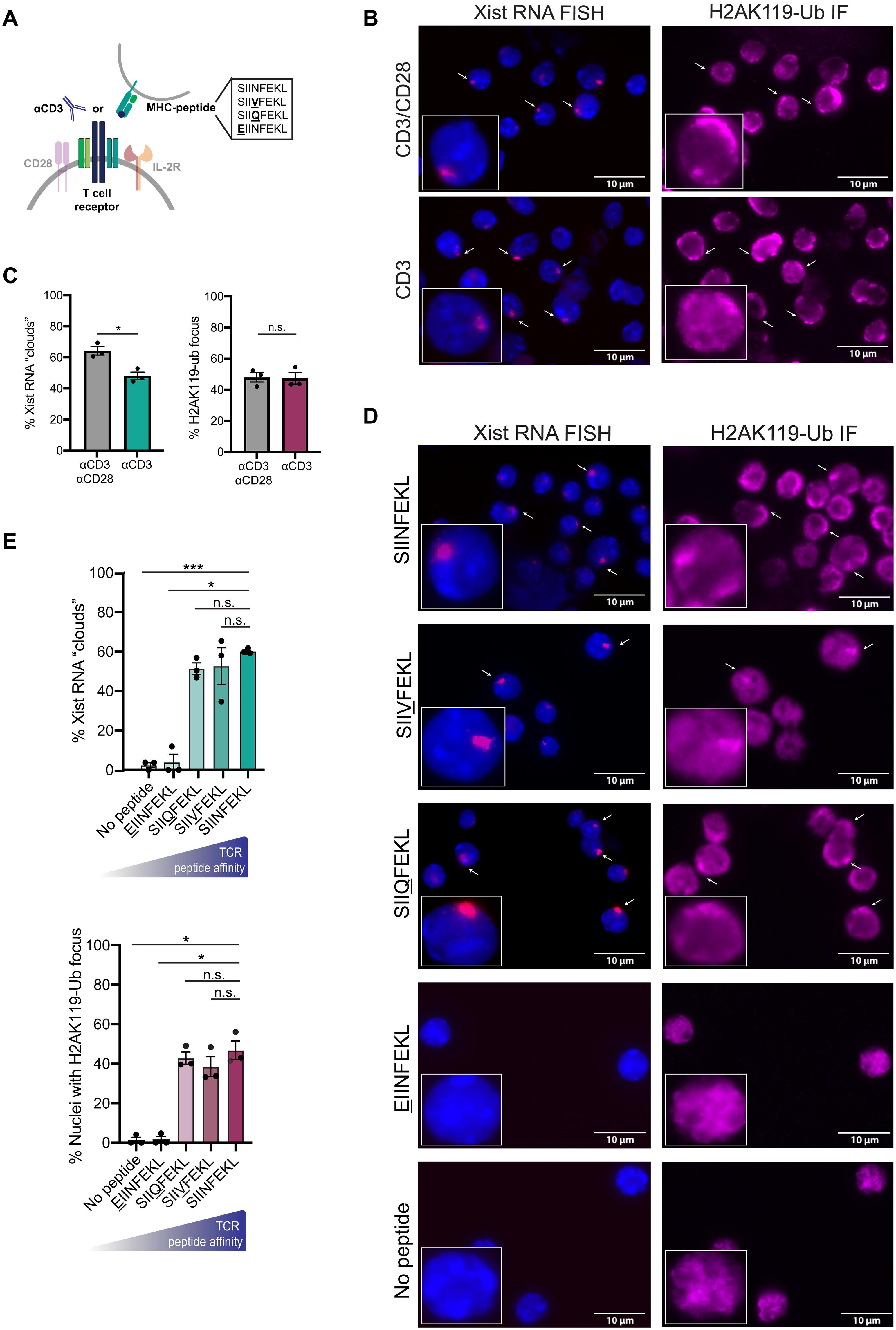Maintenance of X chromosome inactivation after T cell activation requires NF-κB signaling
IF 17.6
1区 医学
Q1 IMMUNOLOGY
引用次数: 0
Abstract
X chromosome inactivation (XCI) balances X-linked gene dosage between sexes. Unstimulated T cells lack cytological enrichment of X-inactive specific transcript (Xist) RNA and heterochromatic modifications on the inactive X chromosome (Xi), which are involved in maintenance of XCI, and these modifications return to the Xi after stimulation. Here, we examined allele-specific gene expression and epigenomic profiles of the Xi in T cells. We found that the Xi in unstimulated T cells is largely dosage compensated and enriched with the repressive H3K27me3 modification but not the H2AK119-ubiquitin (Ub) mark. Upon T cell stimulation mediated by both CD3 and CD28, the Xi accumulated H2AK119-Ub at gene regions of previous H3K27me3 enrichment. T cell receptor (TCR) engagement, specifically NF-κB signaling downstream of the TCR, was required for Xist RNA localization to the Xi. Disruption of NF-κB signaling in mouse and human T cells using genetic deletion, chemical inhibitors, and patients with immunodeficiencies prevented Xist/XIST RNA accumulation at the Xi and altered X-linked gene expression. Our findings reveal a previously undescribed connection between NF-κB signaling pathways, which affects XCI maintenance in T cells in females.

T 细胞激活后 X 染色体失活的维持需要 NF-κB 信号传导
X 染色体失活(XCI)可平衡两性之间的 X 连锁基因剂量。未受刺激的T细胞缺乏细胞学富集的X-非活性特异性转录本(Xist)RNA和非活性X染色体(Xi)上的异染色质修饰,而这些修饰参与了XCI的维持。在这里,我们研究了T细胞中Xi的等位基因特异性基因表达和表观基因组图谱。我们发现,在未受刺激的 T 细胞中,Xi 在很大程度上受到剂量补偿,富含抑制性 H3K27me3 修饰,但不富含 H2AK119-泛素(Ub)标记。在 CD3 和 CD28 介导的 T 细胞刺激下,Xi 在先前 H3K27me3 富集的基因区域积累了 H2AK119-Ub。T细胞受体(TCR)的参与,特别是TCR下游的NF-κB信号,是Xist RNA定位到Xi的必要条件。利用基因缺失、化学抑制剂和免疫缺陷患者来破坏小鼠和人类 T 细胞中的 NF-κB 信号传导,可防止 Xist/XIST RNA 在 Xi 上的积累并改变 X 连锁基因的表达。我们的研究结果揭示了 NF-κB 信号通路之间以前未曾描述过的联系,这种联系会影响雌性 T 细胞中 XCI 的维持。
本文章由计算机程序翻译,如有差异,请以英文原文为准。
求助全文
约1分钟内获得全文
求助全文
来源期刊

Science Immunology
Immunology and Microbiology-Immunology
CiteScore
32.90
自引率
2.00%
发文量
183
期刊介绍:
Science Immunology is a peer-reviewed journal that publishes original research articles in the field of immunology. The journal encourages the submission of research findings from all areas of immunology, including studies on innate and adaptive immunity, immune cell development and differentiation, immunogenomics, systems immunology, structural immunology, antigen presentation, immunometabolism, and mucosal immunology. Additionally, the journal covers research on immune contributions to health and disease, such as host defense, inflammation, cancer immunology, autoimmunity, allergy, transplantation, and immunodeficiency. Science Immunology maintains the same high-quality standard as other journals in the Science family and aims to facilitate understanding of the immune system by showcasing innovative advances in immunology research from all organisms and model systems, including humans.
 求助内容:
求助内容: 应助结果提醒方式:
应助结果提醒方式:


